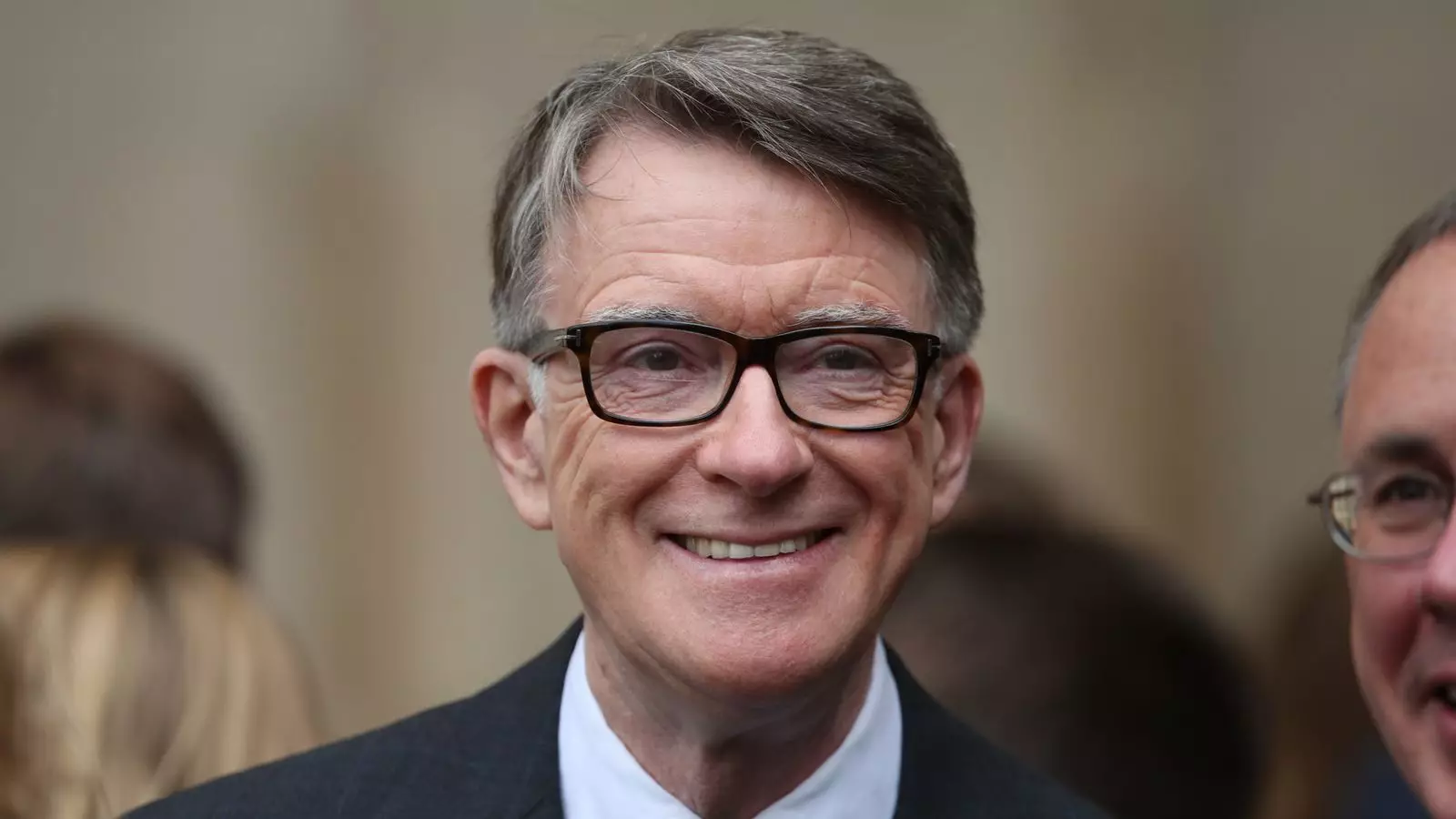The recent announcement of Lord Mandelson as the UK’s new ambassador to the United States has ignited a wave of political reactions, notably the scathing remarks from Chris LaCivita, a co-manager of Donald Trump’s presidential campaign. LaCivita’s Twitter post characterized Mandelson as an “absolute moron,” underlining the discord that exists between the former UK Labour official and the incoming United States administration. The sharp critique reflects broader tensions that often accompany political appointments, especially those that tread into the territory of diplomatic relations with a contentious figure such as Trump, who has had a fraught history of criticisms directed toward UK politicians.
Lord Mandelson’s appointment comes at a crucial juncture as President-elect Trump prepares to re-enter the arena of American politics. His past comments labeling Trump a “danger to the world” and “little short of a white nationalist and racist” have positioned him as a polarizing figure in the eyes of supporters of the former president. His criticism brings up critical questions about the nature of international diplomacy at a time when many believe relationships may be fraught with underlying tensions.
The appointment was reaffirmed by Labour leader Sir Keir Starmer, who emphasized the challenges and opportunities that lie ahead for both the UK and the US amid fluctuating global dynamics. Starmer’s remarks indicate a willingness to foster a relationship that could benefit the UK economically and politically, even if it means advocating for a potentially uncomfortable collaboration with a leader like Trump. He stated, “We face challenges in Britain but also big opportunities,” showcasing a dedication to building on historical alliances, despite the evident skepticism expressed within various political circles.
From a historical standpoint, Lord Mandelson has shaped the Labour Party’s recent trajectory, helping to architect New Labour and revitalize the party’s image in the late 1990s. His dual legacy is one of both innovation and contention; while he was pivotal in the political landscape of Britain, his controversial appointments often incite anger among traditional Labour supporters who view his more centrist positions as a betrayal of leftist principles. His appointment represents not only continuity in British diplomacy but also the ongoing struggle between establishment politics and progressive ideologies within the Labour Party itself.
The ongoing debate surrounding Mandelson’s suitability for the role of ambassador raises pertinent questions about the nature of political nominations for pivotal positions. Are such appointments intended solely for those who can work cooperatively with the current leadership, or do politicians like Mandelson bring valuable expertise to the table despite ideological clashes? With Mandelson’s extensive background in European affairs and trade, some diplomats suggest that he could serve as a valuable bridge in managing US-UK relations despite past criticisms.
It is also noteworthy that outgoing ambassador Dame Karen Pierce’s tenure will end shortly as she prepared to hand over the reins. Her role as the first female UK ambassador to the US has set a historic precedent, and her contributions have been recognized by Starmer himself. He took a moment to laud her effectiveness over the past four years, illustrating the complexities involved in transitioning diplomatic roles. The contrast between Pierce’s more amicable rapport and Mandelson’s potentially combative approach encapsulates the varied strategies nations can adopt in fostering international relations.
As the UK steps into this new chapter with Lord Mandelson at the helm in Washington, the looming question remains: will his appointment help to solidify a connective tissue between the two nations, or will it exacerbate existing fissures? The nuanced relationship between the UK and the US, especially under the Trump administration, requires a careful and strategic approach—one that balances historical alliances with the modern realities of political discord. The forthcoming months will reveal how Mandelson’s diplomatic skills will be leveraged and whether conciliatory efforts can emerge from a historically fractious relationship. In essence, while the stage is set for collaboration, how this plays out in the broader landscape of international diplomacy is still unfolding.

Leave a Reply